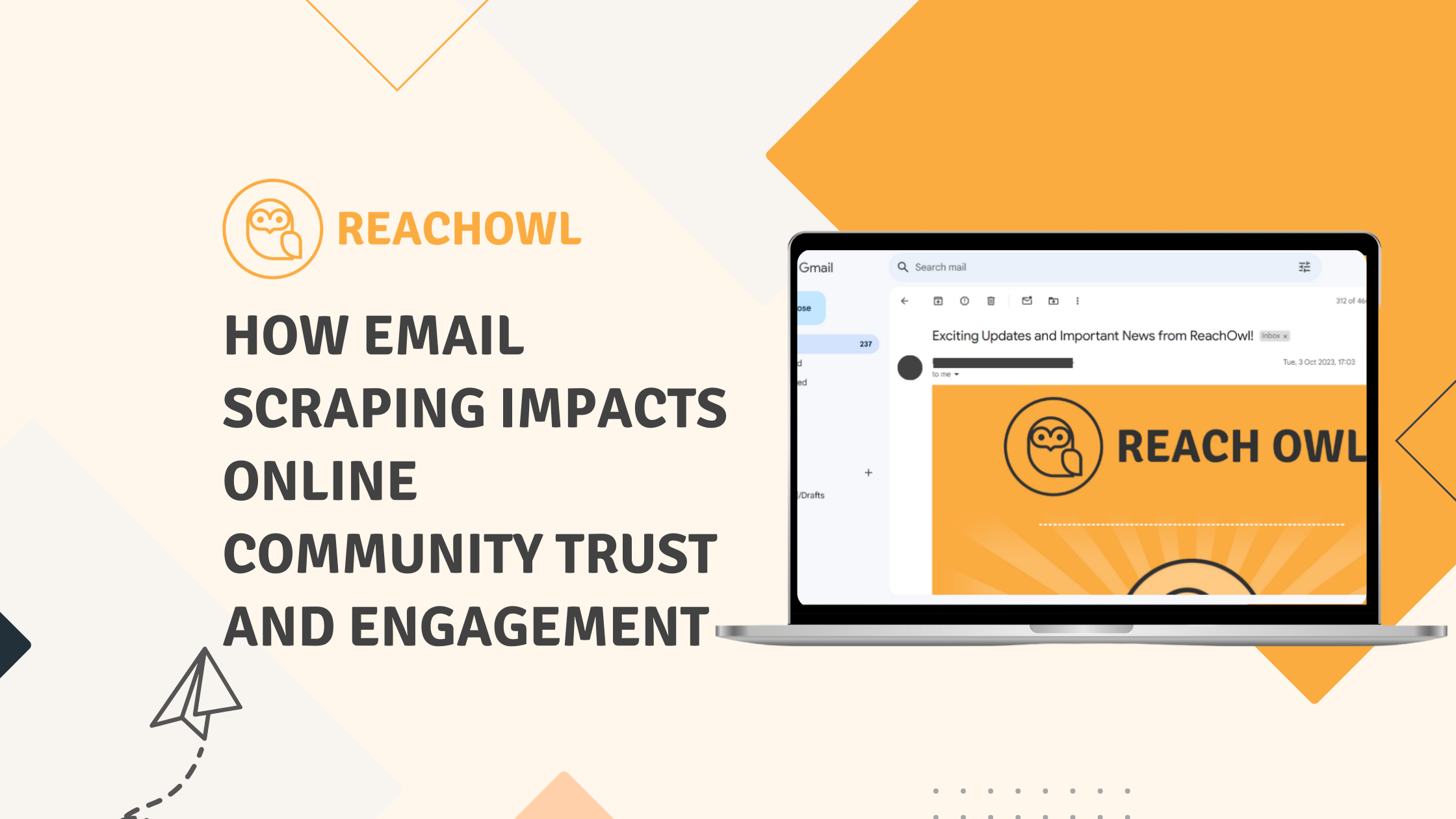In the world of social networking, people with similar interests hang out, chat, and make friends. Trust and being involved are super important in these communities. But there’s something called email scraping, which can mess things up. It’s like taking people’s emails without asking, and that can really hurt trust and how much people get involved in these online groups.
This blog talks about email scraping, examining how it affects trust and engagement within online communities, and why community managers, members, and platform developers should be vigilant in addressing this issue.
Table of Contents
ToggleThe Importance of Trust and Engagement in Online Communities
Online communities need trust and engagement to work well. Trust makes people feel safe sharing stuff, and engagement keeps the community active and interesting. But email scraping can mess up both trust and engagement in these communities.
The Role of Trust in Online Communities
1. Privacy Concerns:
Trust in online communities relies on privacy and security. Members trust that their personal information won’t be misused. Email scraping breaks this trust, making members feel violated and harming the community’s reputation.
2. Intentions Matter:
Email scraping raises doubts about others’ intentions. Members may wonder if people are here to connect or harvest data for marketing. Suspicion can harm trust and make the community less open and friendly.
3. Impact on Vulnerable Populations:
Online communities often include vulnerable populations who may not be tech-savvy or well-versed in online privacy. These individuals can be disproportionately affected by email scraping, making them feel more exposed and less trusting of online spaces.
4. Impact on Engagement:
Trust is a fundamental element of engagement. When trust is compromised, members may withdraw from the community, participate less actively, or even leave altogether. A decrease in engagement can harm the community’s vibrancy and effectiveness.
The Role of Engagement in Online Communities
1. Spam and Unsolicited Emails:
Email scraping can lead to a rush of spam and unwanted emails in members’ inboxes. This can make the community experience more annoying than helpful, causing members to disengage.
2. Loss of Valuable Members:
Engaged, active members are the essence of any online community. When email scraping drives these members away due to privacy concerns or spam overload, the community loses valuable contributors and knowledge resources.
3. Decline in Open Communication:
Email scraping can lead to a decline in open communication within the community. Members become hesitant to share contact information, resources, or personal stories, fearing they might be exploited or bombarded with unwanted emails.
4. Diminished Collaborations:
Online communities where people come together to help each other and share what they know are really important. But sometimes, if people feel unsure about giving out their contact details, it can make it hard for everyone to work together and share ideas. This can stop the community form growing and making a big difference.
How do you protect trust and engagement in an online community?
Given the importance of trust and engagement within online communities, it’s important to take proactive steps to protect against email scraping.
1. Educate Members:
Community managers should educate members about the risks of email scraping and the importance of safeguarding their personal information. Providing tips on how to protect their privacy online can empower members to be more alert.
2. Implement privacy settings:
Platforms hosting online communities should provide robust privacy settings that allow members to control who can access their contact information. These settings should default to protecting members’ privacy.
3. Anti-scraping measures:
Community platforms should implement anti-scraping measures, such as CAPTCHAs or rate limits, to deter automated data collection. These measures can make email scraping more challenging for malicious actors.
4. Report and Moderation Tools:
Provide members with easy-to-use reporting tools to flag suspicious behavior. Community managers should also have moderation tools to swiftly address reported issues.
5. Community Guidelines:
Clearly define community guidelines that address data scraping and misuse of personal information. Enforce these guidelines consistently to maintain trust and engagement.
6. Secure Direct Messaging Systems:
Offer secure direct messaging systems within the community platform that protect members’ contact information while still facilitating communication.
Conclusion
Email scraping threatens trust and engagement in online communities by compromising privacy, causing suspicion, and inundating members with spam. To combat this, education, technical measures, and adherence to community rules are essential.
Community managers, developers, and members must work together to preserve the integrity of these communities, reflecting their commitment to a secure and collaborative environment.

